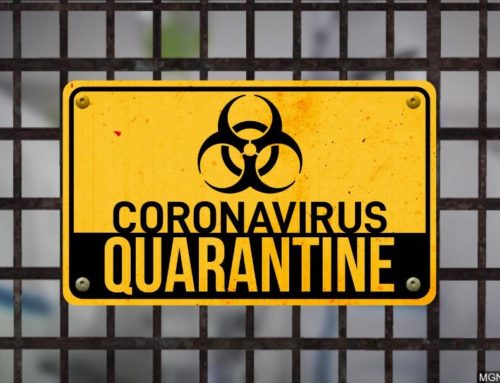As more and more states legalize the use of marijuana, a product known as CBD has surged in popularity as well. Cannabidiol, or CBD, is popping up on shelves across the country in oil, extract, vaporized liquid and capsule form. Cannabidiol is being touted as a magical elixir. There’s no question that CBD is the buzzy wellness product of the moment. If you live in a state where it’s currently legal, you might feel like CBD is everywhere! Many people still find CBD a little confusing—especially when it comes to figuring out what it is, what is the right way to use it, and if it’s legal. Are you curious about CBD health benefits and what all the recent hype is about?
What is CBD?
CBD comes from the Cannabis sativa plant, which is also used to produce hemp and marijuana. It’s extracted from the resin of cannabis buds and flowers and usually diluted with another oil, like MCT.
The major difference between CBD and marijuana is that it does not contain THC, the psychoactive compound that probably comes to mind when you think of marijuana. That means you won’t get high from using CBD.
How does CBD affect the body?
According to Parsley Health, Marijuana and CBD work by acting on the body’s endocannabinoid system. This system’s main job is to maintain homeostasis and help the body adapt to outside stressors.
There are two main types of cannabinoids—endo (produced naturally within the body) and phyto (produced from a plant). CBD is one type of phytocannabinoid. Phytocannabinoids mimic endocannabinoids, so they can act like a supplement, giving you a boost beyond what your body can produce.
Receptors for cannabinoids are found in the digestive, reproductive, nervous, and immune systems. Because cannabinoids interact with almost every system in our bodies, they’re often touted as a cure-all. While they’re not truly able to heal everything, they do regulate neurotransmitter function, inflammation, mitochondrial function, and metabolism.
Is CBD legal?
CBD is in a legal grey area. CBD that is extracted from hemp (which must have an extremely low level of THC) has only been legal nationwide since the Agriculture Improvement Act — better known as the Farm Act — was passed in December 2018.
Thanks to the passing of the bill, zero THC CBD is not illegal in any state in the USA. That’s right; according to federal law, it is legal in all 50 states. That said, since the change in law is relatively new, some states might not fully embrace CBD. This should change with the new bill, however, it may take time.
CBD that is extracted from other cannabis plants is still illegal on the federal level, but may be legal under state law.
Is CBD Legal in 2019?
- Marijuana derived CBD is not legal federally.
- The government classifies hemp as any plant of the cannabis family that contains less than 0.3% THC.
- It classifies “marijuana” as any plant of the cannabis family that contains greater than 0.3% THC.
- You need to check your specific state for any restrictions
Bottom line, it is legal to purchase and consume hemp derived CBD in all 50 states.
Who should try CBD oil?
CBD is safe for almost everyone, according to a recent report from the World Health Organization, but check with your doctor before starting any CBD product, especially if you are pregnant or on any medications.
CBD Uses
According to Very Well Health, proponents of CBD oil claim that it can treat a wide variety of health issues, ranging from everyday ailments to chronic medical conditions. These issues include:
- Acne
- Anxiety
- Chronic pain
- Depression
- Epilepsy
- Glaucoma
- Insomnia
- Loss of appetite and body weight
- Muscle spasms
- Parkinson’s disease
CBD Benefits
According to Healthline, here are seven health benefits of CBD oil that are backed by scientific evidence.
- Can Relieve Pain
The human body contains a specialized system called the endocannabinoid system (ECS), which is involved in regulating a variety of functions including sleep, appetite, pain and immune system response.
The body produces endocannabinoids, which are neurotransmitters that bind to cannabinoid receptors in your nervous system.
Studies have shown that CBD may help reduce chronic pain by impacting endocannabinoid receptor activity, reducing inflammation and interacting with neurotransmitters
- Could Reduce Anxiety and Depression
CBD shows promise in the treatment of anxiety disorders, according to a report published in the journal Neurotherapeutics in 2015. Looking at results from experimental research, clinical trials, and epidemiological studies, the report’s authors found evidence that CBD may help treat generalized anxiety disorder, panic disorder, social anxiety disorder, obsessive-compulsive disorder, and post-traumatic stress disorder.
- Can Alleviate Cancer-Related Symptoms
CBD may help reduce symptoms related to cancer and side effects related to cancer treatment, like nausea, vomiting and pain.
- May Reduce Acne
Based on recent scientific studies, CBD oil may help treat acne due to its anti-inflammatory properties and ability to reduce sebum production.
- Might Have Neuroprotective Properties
Researchers believe that CBD’s ability to act on the endocannabinoid system and other brain signaling systems may provide benefits for those with neurological disorders.
- Could Benefit Heart Health
Recent research has linked CBD with several benefits for the heart and circulatory system, including the ability to lower high blood pressure.
- Several Other Potential Benefits
CBD has been studied for its role in treating a number of health issues other than those outlined above.
- Antipsychotic effects: Studies suggest that CBD may help people with schizophrenia and other mental disorders by reducing psychotic symptoms.
- Substance abuse treatment: CBD has been shown to modify circuits in the brain related to drug addiction. In rats, CBD has been shown to reduce morphine dependence and heroin-seeking behavior.
- Anti-tumor effects: In test-tube and animal studies, CBD has demonstrated anti-tumor effects. In animals, it has been shown to prevent the spread of breast, prostate, brain, colon and lung cancer.
- Diabetes prevention: In diabetic mice, treatment with CBD reduced the incidence of diabetes by 56% and significantly reduced inflammation.
Side effects of CBD
CBD has few side effects and is considered a safe substance to take. These are some of the known side effects of CBD:
- Nausea
- Dry mouth
- Vomitting
- Diarrhea
- Bloating
All are usually mild, dose-dependent, and resolve in 2 to 4 hours. If you experience any of these, stop using CBD and see your doctor. Some individuals may also show abnormalities in liver function testing.
How to choose a CBD product
CBD is available as edibles, topical balms and patches, capsules, tinctures, oils, teas, and vape pens.
Similar to supplements, CBD production and distribution are not regulated by the FDA. That means it’s important to choose wisely in order to know exactly what you’re getting. A new study in the journal Pediatric Neurology Briefs tested 84 CBD products purchased online and found that 21 percent actually contained THC, 43 percent contained more CBD than listed, and 26 percent contained less CBD than listed.
The best way to find out the quality of your CBD is to discuss directly with the company you are purchasing from. Look for companies that do extensive third party testing to ensure the highest standards.
Schulze Law encourages you to try CBD products in a safe and healthy way. Please reach out with any questions or concerns about safety and laws around CBD!
https://www.who.int/medicines/access/controlled-substances/5.2_CBD.pdf
https://www.hempurecbd.com/is-cbd-oil-legal-in-all-50-states/
https://www.verywellhealth.com/
https://www.healthline.com/






